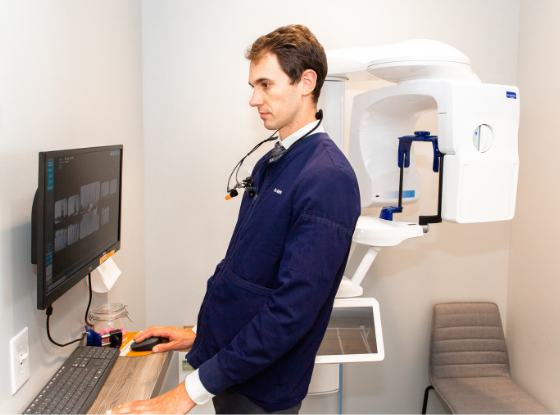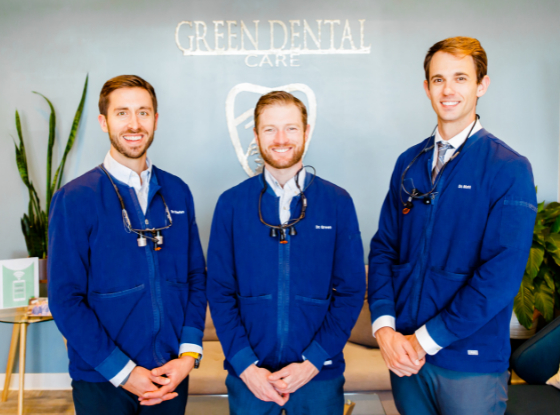Gum Disease: What You Need To Know

Periodontal disease, often known as gum disease, is a bacterial infection that affects the gums and, in rare cases, the bone that surrounds a tooth. Gum disorders affect a single tooth or a group of teeth and often need to be treated by a dentist in Parker CO. Symptoms can vary from irritation (gingivitis) to severe infection (periodontitis) (periodontitis). It’s crucial to pay particular attention to your gums. Dr. Green and his dental office Parker CO cannot stress the importance of gum health enough.
What You Should Know About Gum Disease
In honor of Gum Disease Awareness Month, your Parker CO Dentist shares information on both standard and severe gum illnesses below.
Gingivitis
Gingivitis, diagnosed by dentist 80134, is the most common and mild type of gum disease, characterized by redness and swelling of the gums.
Chronic Periodontitis
Next, the most prevalent of the full-fledged gum illnesses is chronic periodontitis. Gum recession and the creation of pockets between the gums and the teeth are the most common signs.
Aggressive Periodontitis
Although gum disorders are uncommon in children, some children, and adults, even if otherwise healthy, develop aggressive periodontitis. Children as young as three years old, and occasionally even younger, may develop aggressive periodontitis.
Periodontitis Necrotizing
This may be the most serious of all gum disorders. Acute necrotizing ulcerative gingivitis is a disorder that may cause tissue, ligament, and bone destruction in the mouth. People who smoke, are malnourished, or have illnesses that damage their immune systems, such as HIV/AIDS, are more likely to develop necrotizing periodontitis.
Gingivitis
Gingivitis is gum inflammation caused by a buildup of plaque on the teeth. Gums that are red, swollen, or bleed readily when you wash your teeth are signs of gingivitis. Be that as it may, it’s the mildest kind of gum disease, and since it’s so widespread, you may not even realize you have it.
Periodontitis
Advanced periodontal disease is referred to as periodontitis. Periodontitis is a condition in which the gum tissue pulls away from the teeth, leaving pockets where bacteria may accumulate and cause illness. Continued red, swollen, or bleeding gums, discomfort while chewing, poor tooth alignment, receding gums or spaces between the teeth and gums, ulcers on the inside of the mouth, and loose or sensitive teeth are all signs of potential periodontitis.
Gingivitis and periodontitis are both included in periodontal disease, a more broad term for gum disease.
Gum Disease Signs and Symptoms
Gum disease may vary in severity from gingivitis to a more severe infection. When gingivitis progresses to periodontitis, the signs of gum disease aren’t usually visible. Gingivitis is a condition that happens when plaque and tartar buildup on the teeth, causing irritation around the tooth. Periodontitis is caused by poor dental hygiene, and it is most common in individuals aged 30 and over.
Symptoms of gum disease include:
- Pain
- Gum Swelling
- Foul Taste and Smell
- Spacing in teeth
- Gum Bleeding
- Gums that slide away from the teeth
Your dentist will check your teeth and gums to confirm the diagnosis if you have signs of gum disease. However, if gum disease signs are detected early enough, therapy may be as easy as a thorough dental cleaning and a change in your at-home oral hygiene regimen.
Causes of Gum Disease
Because many gum disease symptoms don’t surface until the illness has progressed, it’s crucial to be aware of some risk factors. Identifying risk factors and maintaining good oral hygiene may help you detect gum disease signs early and schedule an appointment with your dentist. A buildup of germs surrounding the gums is one of the primary causes of gum disease. Every day, harmful bacteria accumulate on the teeth and around the gum line. Gum inflammation and gingivitis may develop if tooth and gum germs aren’t eradicated by brushing and flossing regularly. If left untreated, it may lead to periodontitis, a more severe condition.
Gum disease is linked to the following:
- Smoking
- Genetics
- Hormones
- Medical Problems
- Stress
- Medications
- Treatments for Gum Disease
Gum disease may be treated surgically or non-surgically, depending on the severity of the illness and the preferences of the patient states our friends at Easton PA dental practice.
Antibiotics and tooth scaling and root planing, a non-surgical deep-cleaning process that eliminates tartar and plaque below the gum line, are two non-surgical treatments for gum disorders. Although some limited research shows that lasers may be used in addition to tooth scaling and root planning to increase the effectiveness of the process, there is insufficient data to propose a particular wavelength or kind of laser for the treatment of gum diseases.
So, regular dental examinations and thorough oral hygiene practice are essential for the effective treatment of any gum disease. Also, if you smoke, give it up. Tobacco smoking may stymie gum disease healing and increase the likelihood of recurrence.
What Can You Do To Prevent Gum Disease?
While you may be aware that poor dental hygiene is a common cause of gum disease, you may not know how to treat gingivitis, the first stage of gum disease. However, it is pretty straightforward to help cure and prevent it if identified early by putting your dental hygiene practice back on track.
Did you know that one out of every two people in the United States has gingivitis? Learning how to avoid gingivitis and disseminating this knowledge may reduce the incidence of gum disease in the United States. Here are a few basic methods for preventing gingivitis.
- Brush Twice a Day
- Every Day Flossing
- Quitting smoking
- Regular Dental Exams
- Healthy Eating
Contact Green Dental Care for Gum Disease Treatment
Finally, by maintaining regular oral hygiene practice, you may help prevent gum disease from developing. To learn more about gum disease contact our office today!



